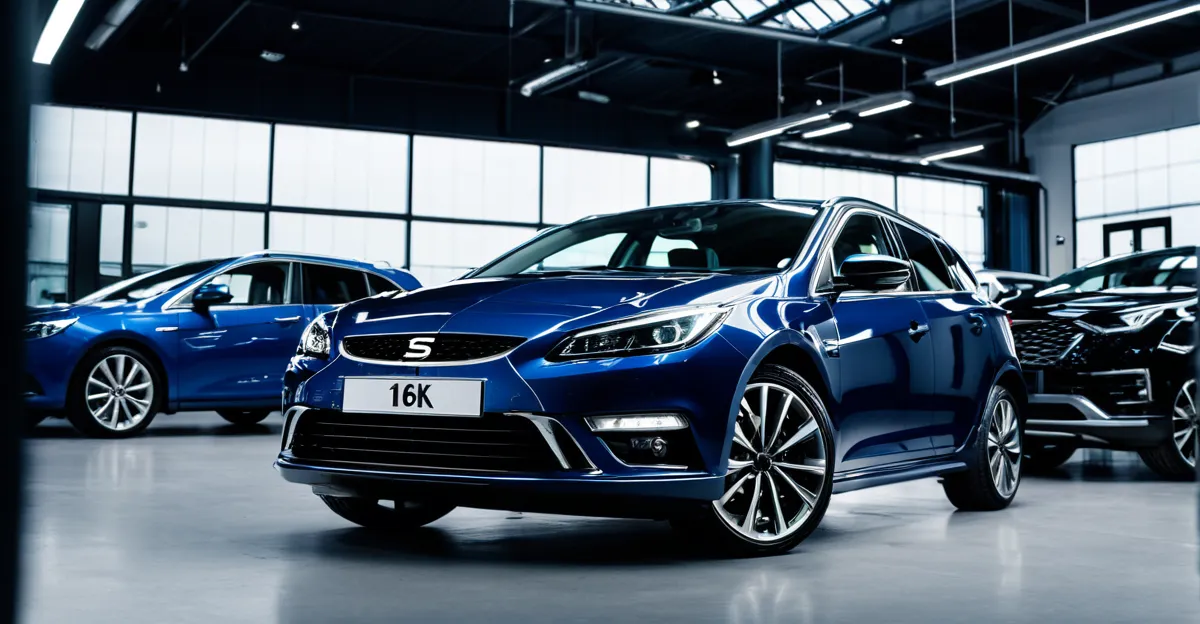Key Consumer Preferences Shaping the UK Automotive Industry
Consumer preferences UK cars are evolving rapidly, reflecting broader UK automotive trends that prioritise sustainability, technology, and lifestyle needs. A significant shift is visible in the growing demand for electric and hybrid vehicles. UK buyers increasingly favour eco-friendly cars, valuing their lower emissions and cost efficiencies. This trend directly impacts car buying behaviour UK, with many seeking vehicles that align with environmental awareness and government incentives promoting green choices.
Advanced connectivity and technology features now play a crucial role in purchasing decisions. Consumers expect smart car features such as integrated infotainment systems, seamless smartphone connectivity, and driver-assist technologies. These elements enhance convenience and safety, making them essential in the competitive UK automotive market.
Also read : What role does AI play in the future of UK car manufacturing?
Moreover, lifestyle changes influence preferences for vehicle types and sizes. There is a noticeable rise in SUVs’ popularity alongside demand for compact, city-friendly models, illustrating diverse consumer needs. Understanding these key consumer preferences UK cars helps manufacturers tailor offerings, driving innovation that resonates with evolving car buying behaviour UK.
The Impact of Sustainability on Purchasing Decisions
Sustainability UK automotive preferences significantly shape car buying behaviour UK today. A clear preference for eco-friendly cars UK is evident, with consumers favouring low-emission and fuel-efficient vehicles. This shift is not just a trend but a response to growing environmental awareness and increasing concerns over climate change.
Also to see : What is the impact of digital transformation on the UK automotive industry?
Government incentives play a crucial role in influencing these green car preferences. Grants, tax breaks, and reduced road taxes make electric and hybrid vehicles more accessible and financially attractive. Such policies accelerate the uptake of sustainable vehicles and reinforce consumer confidence in choosing these options.
Moreover, consumer perception of brand sustainability initiatives impacts purchasing decisions. Many buyers actively seek manufacturers dedicated to reducing their environmental footprint through sustainable production methods and renewable energy usage. This adds to the appeal of vehicles from brands with strong green credentials.
Overall, the emphasis on sustainability UK automotive standards reflects a conscious move by consumers toward responsible mobility. Eco-friendly cars UK are no longer niche but central to car buying behaviour UK, driven by both ethical considerations and practical benefits.
Technology and Connectivity Driving Consumer Choice
Technology is central to evolving car buying behaviour UK, with consumers prioritising connected cars UK that offer seamless digital experiences. Demand for advanced infotainment systems incorporating real-time navigation and personalised settings has surged. Buyers favour vehicles that integrate smart car features such as voice control, smartphone mirroring, and app connectivity, ensuring effortless interaction on the move.
Seamless smartphone integration is a key factor shaping consumer preferences UK cars. Features like Apple CarPlay and Android Auto enable drivers to maintain connection without distraction, meeting the modern need for constant connectivity. This technological expectation has made in-car technology trends a crucial consideration for manufacturers aiming to meet rising consumer demands.
Interest in autonomous and driver-assist technologies is another defining element. Adaptive cruise control, lane-keeping assist, and parking aids are increasingly valued for reducing driver fatigue and enhancing road safety. These innovations influence car buying behaviour UK by providing tangible benefits that appeal to tech-savvy and safety-conscious consumers alike. Ultimately, UK automotive trends now pivot on delivering vehicles rich in smart connectivity and supportive driving technologies.
Preference Shifts in Vehicle Types and Sizes
Car type trends in the UK reveal a clear shift in consumer preferences UK cars, deeply influenced by evolving lifestyle demands and urban living challenges. The popularity of SUVs UK has notably increased, driven by their spaciousness, elevated driving position, and perceived safety benefits. These vehicles cater well to families needing room for passengers and cargo, matching broader UK automotive trends toward versatility and comfort.
Simultaneously, there is sustained demand for compact cars UK, prized for their manoeuvrability and efficiency in congested urban environments. These smaller vehicles appeal to city dwellers who prioritise ease of parking and lower running costs. This dual demand shapes car buying behaviour UK, with manufacturers balancing offerings to meet diverse consumer needs.
Urbanisation and changing family dynamics are essential factors driving these preferences. A growing number of consumers seek vehicles that adapt to both city life and occasional longer journeys. Understanding car type trends allows brands to position models effectively, catering to the UK’s varied driving contexts and reinforcing responsiveness to consumer preferences UK cars.
Influence of Pricing, Financing, and Ownership Models
Flexible financial arrangements have become central to car buying behaviour UK, responding directly to diverse consumer preferences UK cars. Buyers increasingly seek options beyond traditional outright purchases, favouring car finance UK choices such as personal contract purchase (PCP), hire purchase (HP), and leasing schemes. These models provide manageable monthly payments, making new and electric vehicles more affordable and accessible.
What role does total cost of ownership play? This factor significantly influences decisions, as consumers account not only for purchase price but also insurance, maintenance, fuel efficiency, and depreciation. Transparent cost breakdowns help buyers evaluate options more confidently and align choices with budgets.
The rise of car subscription UK services reflects a shift towards flexibility and convenience, appealing to those who prefer short-term commitments or want to avoid long-term depreciation risks. Subscriptions often include insurance, servicing, and roadside assistance, enhancing value and peace of mind.
In sum, evolving payment options cater to contemporary consumer needs, shaping car buying behaviour UK by combining affordability, flexibility, and lowered financial barriers, thus encouraging more people to consider modern, eco-friendly vehicles.
Safety Features and Consumer Assurance
Consumer safety expectations have become a defining factor in car buying behaviour UK. Buyers now prioritise vehicles equipped with advanced car safety features UK such as autonomous emergency braking, blind-spot detection, and multiple airbags. These systems are viewed not just as luxuries but essential components that provide peace of mind and tangible protection.
How do safety ratings influence consumer choices? Independent crash test results and safety assessments are widely consulted before purchase, directly affecting brand reputation and trust. Strong performance in these tests reassures buyers and often tips their decisions toward safer models, reinforcing the importance of automotive safety trends in the market.
Brands investing heavily in innovative safety technologies gain consumer confidence, benefiting from perceived reliability and commitment to protection. Features like adaptive headlight systems and driver monitoring increase the appeal of new vehicles. Moreover, clear communication about these innovations helps dealerships address consumer concerns effectively.
Ultimately, prioritising comprehensive safety solutions aligns with evolving consumer preferences UK cars, boosting assurance and satisfaction while shaping future UK automotive trends.




